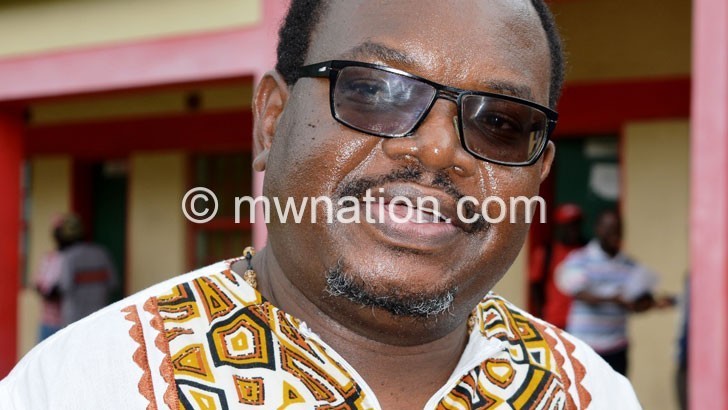Political Parties law review deferred
Parliament’s Legal Affairs Committee has deferred adoption of a provision in the Political Parties Act (Amendment) Bill requiring political parties to align their manifestos with Malawi 2063 agenda.
The committee made the position yesterday after meeting the National Planning Commission (NPC)—the implementing agency of Malawi’s development strategy—and Ministry of Justice officials in Lilongwe as part of the review of the proposed amendment.
While acknowledging that amending Section 12 of the Political Parties Act (2018) by inserting a new Section 12(A) would facilitate smooth implementation of the national development plan, the committee said it would be better placed to scrutinise the Bill after orientation.
Committee chairperson Peter Dimba said: “We need to understand the [national development] agenda because we are doing this for the future generations. So, we need to be very sure of whatever we adopt.”
He said his committee will secure training for its members to be familiar with the Malawi2063 agenda.

Section 12A (1) of the proposed Act states that “the registrar [of political parties] shall not register a political party unless its manifesto is aligned to the national development agenda applicable at the time of registration”.
The Bill also requires a political party intending to register to submit its manifesto to the NPC “for certification as aligned to the national development agenda”.
The commission shall, within 14 days of receiving an application, review the manifesto and serve its decision, in writing, on the political party.
In an interview yesterday, Centre for Multiparty Democracy (CMD) executive director Kizito Tenthani said the committee’s decision was justified, as it cannot make serious decisions with little knowledge.
“If the Legal Affairs Committee is not fully conversant with MW2063, they are justified to demand a full orientation. They have to decide whether to adopt the amendment or not based on full knowledge of MW2063,” he said.
NPC legal adviser Mtamandeni Liabunya said the Bill seeks to address past challenges where development has tended to slow down when political parties in government change.
He said: “We want all manifestos to point in one direction, the agenda 2063, but with different ideas. For example, if the agenda is talking about mechanisation of agriculture, then the parties can align this with different technologies so that if the government changes, the incoming government should proceed with mechanisation though with their own technology.”
But University of Malawi political analyst Ernest Thindwa faulted the committee for failing to adopt the Bill on the basis that they need training on Malawi 2063, arguing that the document is available for the public; hence, it can be accessed and studied anytime.
He also said there is no need to force political parties to align their manifestos to the Malawi2063 agenda.
“In fact, it [aligning manifestos] is limiting parties’ vision of innovative ideas and reduces competition among political parties,” said Thindwa.
President Lazarus Chakwera launched Malawi2063 early this year to drive national development and ensure continuity.





